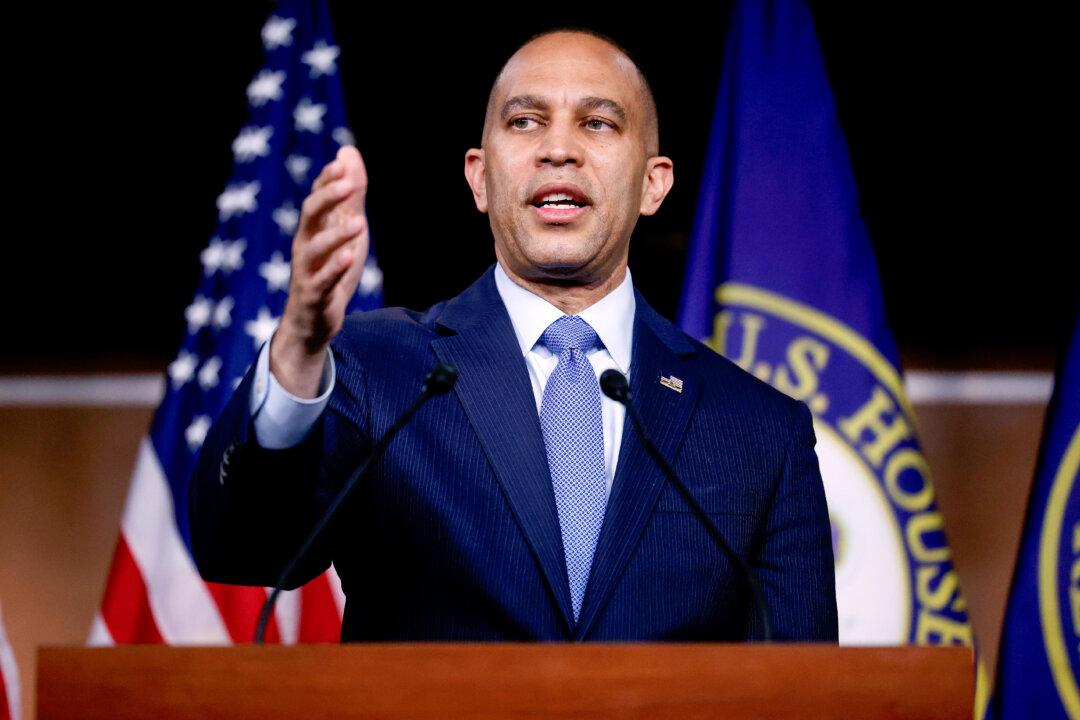A House committee advanced four bills aimed at reducing the influence of foreign and domestic money in U.S. politics to the full chamber.
On May 15, the House Ways and Means Committee recommended bills concerning where nonprofit organizations get their money, how they spend money on politics, and how they report to the IRS. The bills will now be considered by the House of Representatives, carrying the committee’s favorable recommendation.
In his opening statement, Rep. Jason Smith (R-Mo.), the committee’s chairman, said the bills will “help protect the integrity of our political and policy debates.”
Rep. Richard Neal (D-Mass.), the committee’s ranking member, dismissed much of the Republican rhetoric as serving only former President Donald Trump’s interests.
“The most sacred tenet of our democracy is fair, free elections where we accept the outcome,” Mr. Neal said of the day’s agenda. “Putting doubt to the American people’s minds about distortions and disinformation and even fraud is not helpful to the political conversation.”
Most of the three-and-a-half-hour markup session was dedicated to two bills, the Foreign Grant Reporting Act and the End Zuckerbucks Act.
The first bill, introduced by Rep. Lloyd Smucker (R-Pa.), is designed to require the disclosure of grants made by tax-exempt organizations to recipients in foreign countries.
At the hearing, Mr. Smucker said the bill would force 501(c)(3) and 501(c)(4) nonprofits to disclose how they are spending their money outside of the United States. Currently, nonprofit entities are required to disclose their grantees in the United States but not their foreign disbursements.
The sponsor said this is important because the nonprofit economy is growing. More than 1.4 million nonprofits are registered with the IRS, and their activities allow untold amounts of money to go overseas without public disclosure.
The second bill, introduced by Rep. Claudia Tenney (R-N.Y.), would establish a national ban on the private funding of public election administration.
Speaking in support of her bill, Ms. Tenney called out the Center for Tech and Civic Life’s activity in the run-up to the 2020 general election and its plans for 2024.
Ms. Tenney said the center is supporting the U.S. Alliance for Election Excellence to perform similar work in 2024.

Republicans said the bill would stop private funding of public election administration in an effort to stamp out any political pressure private groups might exert on election officials.
In a lengthy debate, the committee’s Democrats said the bill ignores the issues of underfunded election administration. Furthermore, members of the committee’s minority party said it leans to anti-Semitic rhetoric by making Mr. Zuckerberg, who is Jewish, a political boogeyman.
Rep. Terri Sewell (D-Ala.) said Congress should be working on legislation to fully fund and staff elections around the country instead of looking for ways to restrict money available for election administration.
“We see long lines, polling station changes, and ballot shortages,” Ms. Sewell said. “Too often, these consequences disproportionately impact minority communities.”
The committee spent considerably less time on three other provisions.
First, it advanced the American Donor Privacy and Foreign Funding Transparency Act.
That act, sponsored by Rep. David Schweikert (R-Ariz.), would change tax rules to force tax-exempt organizations to disclose foreign sources of money. He said unknown foreign sources are exploiting the current law to push divisive political arguments in the United States.
Mr. Neal and Rep. Judy Chu (D-Calif.) said the bill would also make it easier for donors to continue hiding their involvement in politically active nonprofit groups.
Second, it advanced the No Foreign Election Interference Act.
The bill, sponsored by Rep. Nicole Malliotakis (R-N.Y.), also targets foreign giving to nonprofits by imposing penalties on international money recipients. Those penalties, she said, would include loss of tax-exempt status.
Mr. Neal dissented, saying the Republicans are simply interested in using their power to go after those who do not share their political views.
Finally, the committee advanced the Taxpayer Data Protection Act.
The legislation, sponsored by Mr. Smith and all the Republican members of the committee, proposes significantly increasing the federal penalties for unauthorized disclosure of tax returns and tax return information.
Mr. Smith highlighted the case of Charles Littlejohn, a government contractor who stole tax information connected to President Trump and other public figures. Mr. Littlejohn, according to Mr. Smith, leaked the documents to The New York Times and Pro Publica to achieve his personal political goals.
According to the U.S. Department of Justice, Mr. Littlejohn got five years in prison and a $5,000 fine in January. Mr. Smith said the penalties should be higher and proposed a new maximum of 10 years in prison and a $250,000 fine.
Rep. Bill Pascrell (D-N.J.) said the articles published based on documents stolen by Mr. Littlejohn exposed how most wealthy Americans take advantage of the tax code to “avoid paying their fair share.” While he said he agrees that criminals should face penalties for stealing private information, the bigger issue is the Republican Party’s complicity in helping the rich avoid paying taxes.
“Let’s not get distracted ... from the true issue,” Mr. Pascrell said. “We have a two-tier tax system screwing over working people.”





